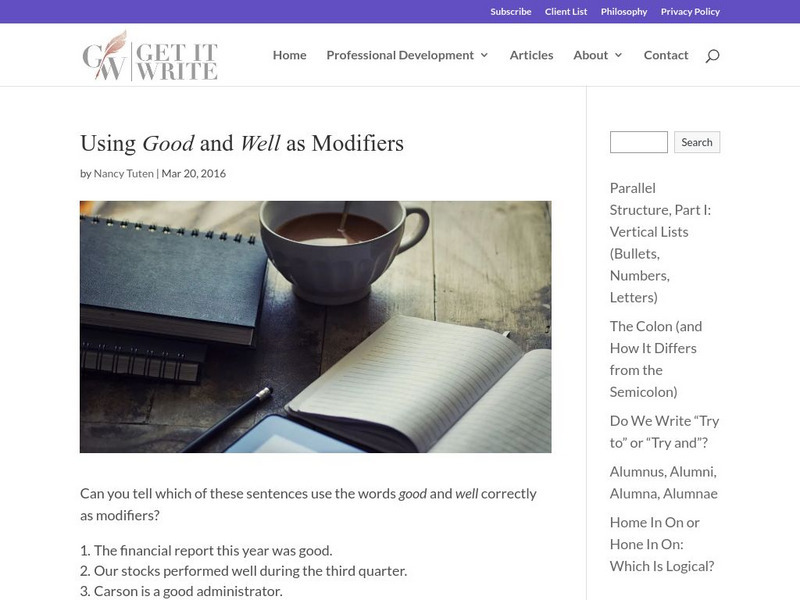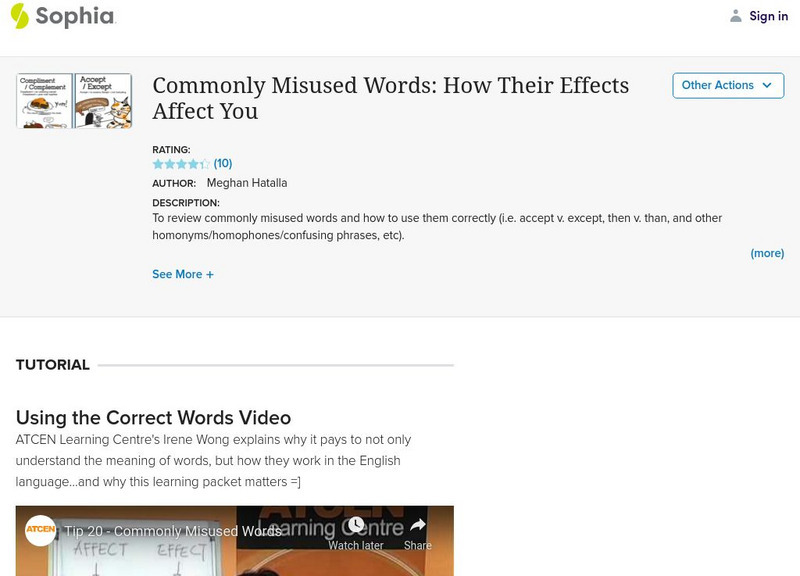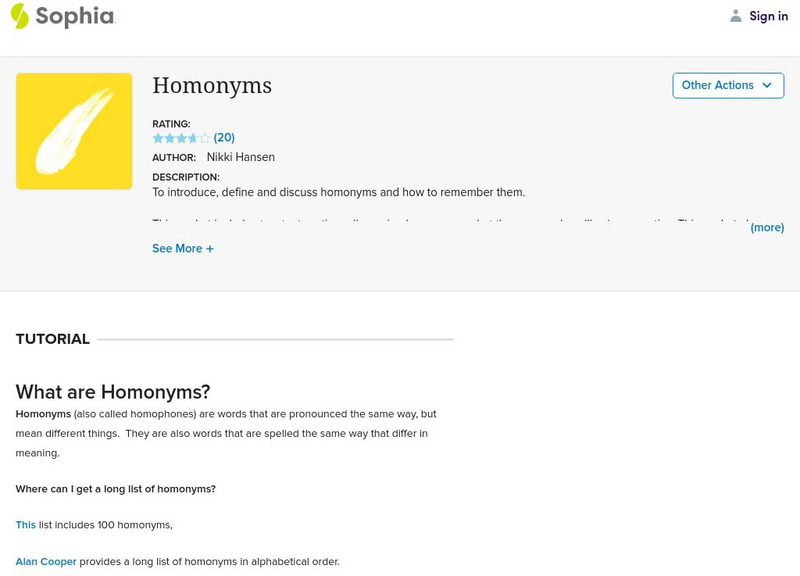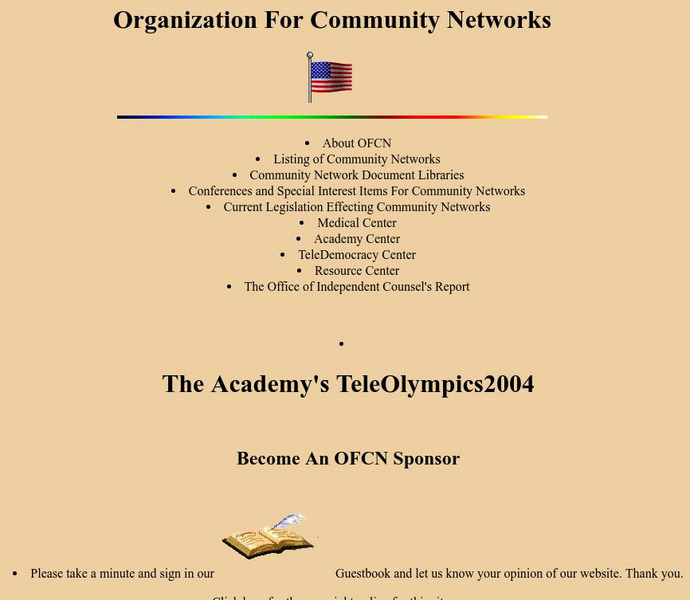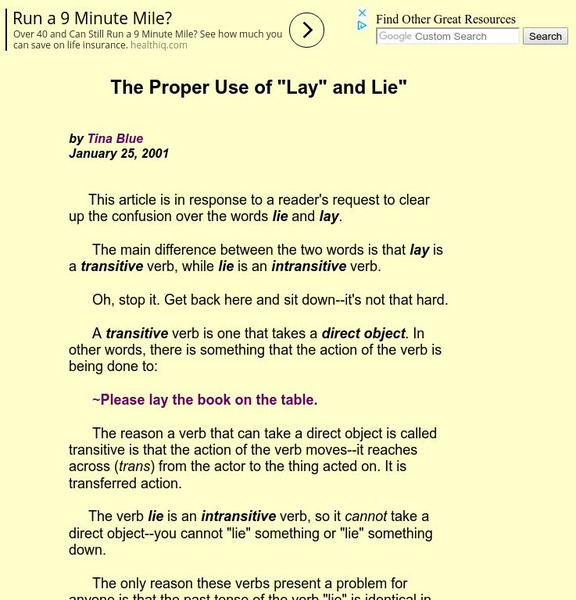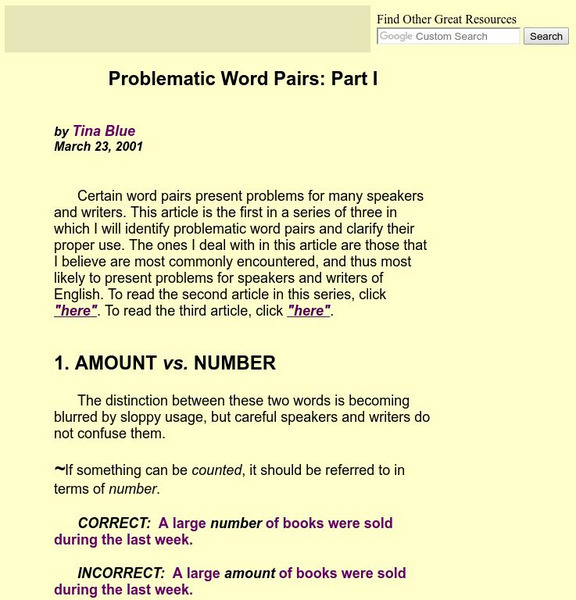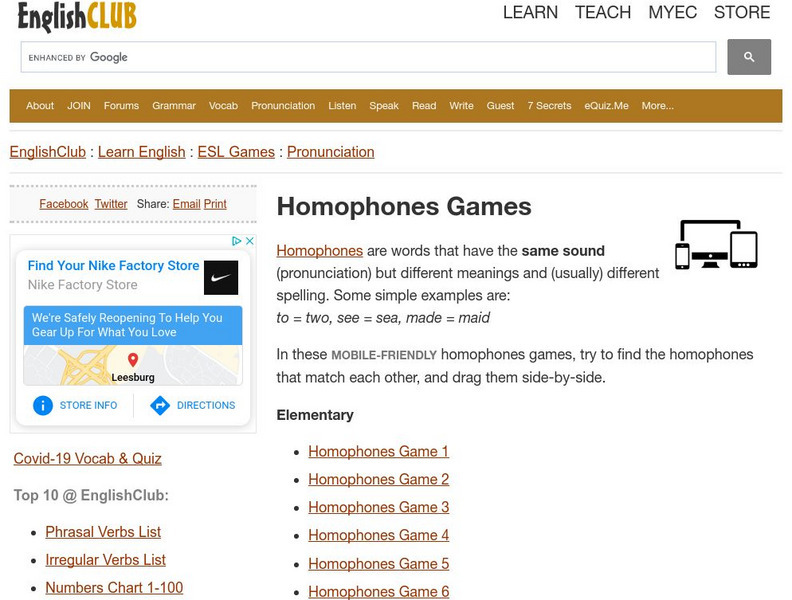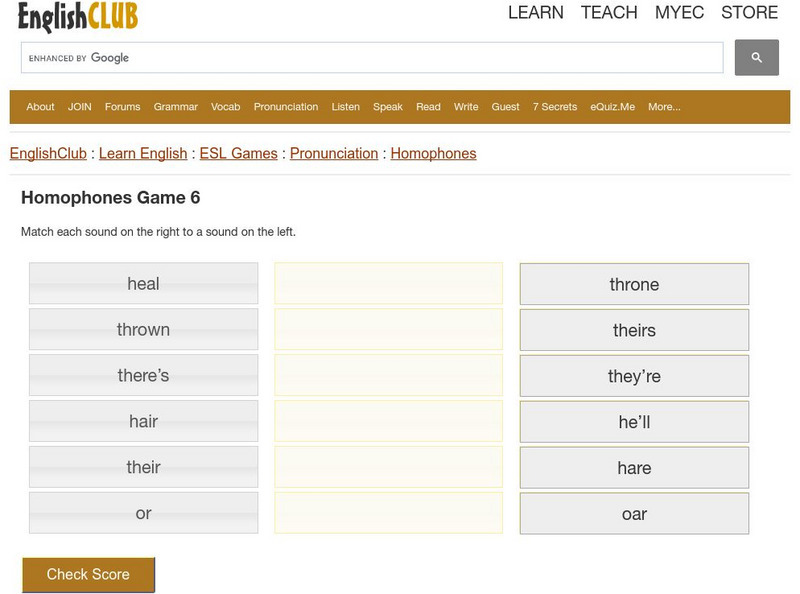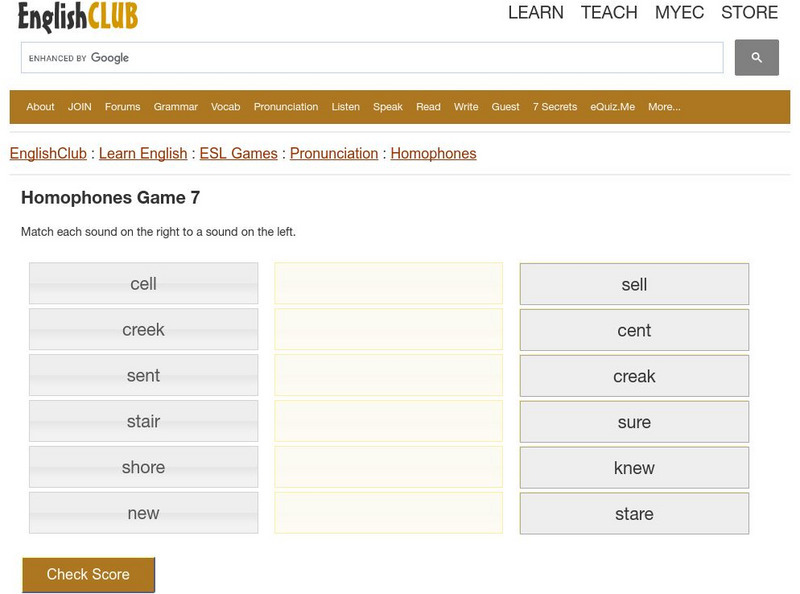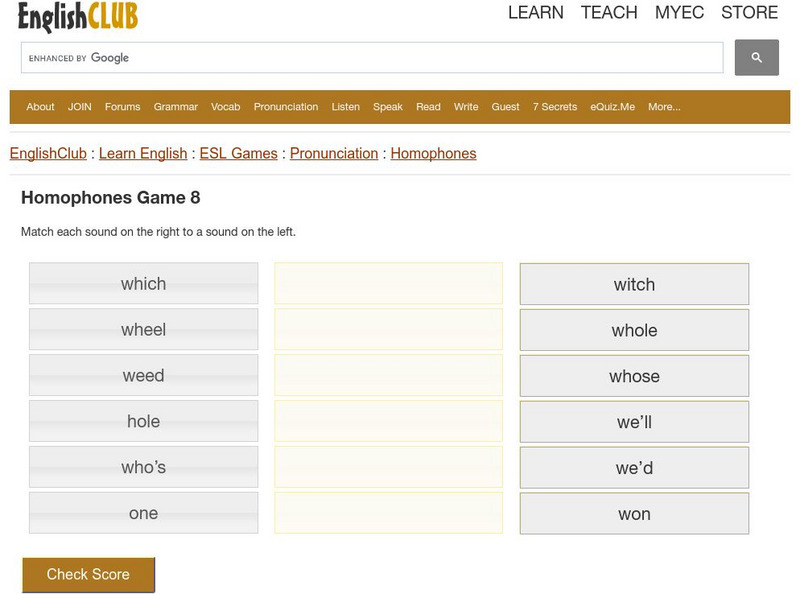Get It Write
Get It Write: Using "Good" and "Well" as Modifiers
This site provides an explanation for using "good" and "well" properly. A self test is given at the end of the article.
Sophia Learning
Sophia: Commonly Misused Words: How Their Effects Affect You
An informative, multimedia lesson on words that are easily confused in the English language. View a video [1:11], a poster, a slide show, and a handout to learn the correct meanings of several commonly misused words.
Sophia Learning
Sophia: Homonyms
Read about homonyms, and then click through slides explaining the meanings of 14 homonyms and commonly misused words. Find more examples in a homonym video [1:20] and a triple homonym song video. [2:08] Finally, read spelling tips for...
Sophia Learning
Sophia: Commonly Misused Words
This audio lesson discusses some commonly misused words. The author provides a "cheat sheet" to define the differences in the commonly misused words. Examples of the correct applications of the words are also provided for further...
Get It Write
Get It Write: Regarding "Irregardless"
In addition to addressing the misuse of "irregardless" for "regardless," there's a lengthy discussion about the meaning of negative prefixes, as well as other prefixes that can be confusing. A great reference.
Get It Write
Get It Write: Anymore and Everyday
Knowing the difference between the use of words adverbially and adjectivally is essentia, especially when using "anymore" and "any more" and "everyday" and "every day." A very good explanation of the usage is given along with many...
Get It Write
Get It Write:tuten and Swanson: "The Reason Is Because" vs. "The Reason Is That"
This site briefly explains why the phrase, "the reason is because," should never be used when you mean "the reason is that." A self test is provided at the end of the article.
Organization for Community Networks
Ofcn: Horrid Homonyms
This site features a lesson plan for homonyms. Learners and teachers will benefit in their speech and writing skills after tackling this activity.
Khan Academy
Khan Academy: Frequently Confused Words: Affect/effect
Do you know when to use 'affect' and when to use 'effect'?
Grammar Tips
Grammar Tips: The Proper Use of "Lay" and "Lie"
Check this brief explanation of how to tell the difference between lay, a transitive verb, and lie an intransitive verb, and use them properly in English grammar.
Grammar Tips
Grammar Tips: Problematic Word Pairs: Part I
Certain word pairs present problems for many speakers and writers such as amount versus number, continuous versus continually, and so on. This three-part article identifies problematic word pairs and clarifies their proper use.
Grammar Tips
Problematic Word Pairs: Part Ii
This is the second in three articles that demonstrates such confusing word pairs as "continuous," which means unbroken, and "continually," which describes something that occurs repeatedly over a period of time.
Towson University
Towson University: Commonly Confused Words: Then and Than
This entry explains the difference in meaning and usage of the words "then" and "than," gives examples of each, and provides a link to a page of practice exercises.
Other
Weber State University: Misused Words and Phrases
A fun look at the wrong way to use the English language; includes many examples.
Other
Santa Monica College: Decent, Descent, or Dissent?
Read the definitions and examples of these commonly confused words: decent, descent, or dissent. Then complete five sentences to practice this skill.
English Club
English Club: Esl Games: Matching Homophones
Follow links to 46 different homophone matching games. Links are divided into elementary, intermediate, and advanced. Answers can be checked when completed, and a percentage scores are displayed.
English Club
English Club: Esl Games: Matching Homophones: Game 1
Match each of these six words with its homophone. Answers can be checked when completed, and a percentage score is displayed.
English Club
English Club: Esl Games: Matching Homophones: Game 2
Match each of these six words with its homophone. Answers can be checked when completed, and a percentage score is displayed.
English Club
English Club: Esl Games: Matching Homophones: Game 3
Match each of these six words with its homophone. Answers can be checked when completed, and a percentage score is displayed.
English Club
English Club: Esl Games: Matching Homophones: Game 4
Match each of these six words with its homophone. Answers can be checked when completed, and a percentage score is displayed.
English Club
English Club: Esl Games: Matching Homophones: Game 5
Match each of these six words with its homophone. Answers can be checked when completed, and a percentage score is displayed.
English Club
English Club: Esl Games: Matching Homophones: Game 6
Match each of these six words with its homophone. Answers can be checked when completed, and a percentage score is displayed.
English Club
English Club: Esl Games: Matching Homophones: Game 7
Match each of these six words with its homophone. Answers can be checked when completed, and a percentage score is displayed.
English Club
English Club: Esl Games: Matching Homophones: Game 8
Match each of these six words with its homophone. Answers can be checked when completed, and a percentage score is displayed.
